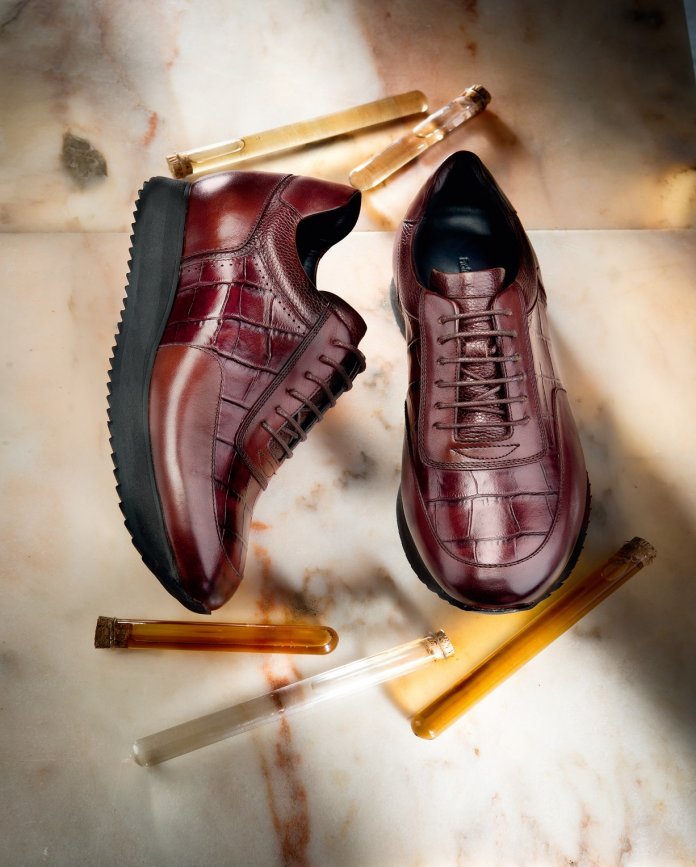It ran the year 1947 when Ferreira Avelar was founded. It was a family-owned company that had the dream of creating a footwear brand capable of making a difference in the national market. In the beginning, the company sold only shoes on demand. Excellence and quality were keywords in a world experiencing a very troubled post-war period. In 1950, the company began its production in the Ferreira Avelar workshop. The shoes were handmade by great master craftsmen which, at the time, only allowed them to produce one pair of shoes.
Later, in 1970, with a consolidated history, the company began the journey towards productivity, with a factory that would allow them to answer greater demand. In 1994, the Profession Bottier brand was created with a clear goal: embark on the internationalisation process. The brand was born already with the second generation, targeted at the French market. The recognition and influence of the designer Jacques Mirault were crucial in conquering this market.
"The balance of these 75 years is certainly positive, although I can only answer for the last 18 years. Success is always preceded by difficulties, periods of learning, growth and maturation. It is important to lay well the foundations to grow”. These are the words of Eduardo Avelar, currently responsible for the company and the second generation at the head of the family business.
Founded after the Second World War, Ferreira Avelar has lived through various significant moments. "All moments are important: from its creation in a troubled post-war period, to the internal (Portugal) recognition of our products; from our first exports in the 1980s to international recognition today. We are always looking for new goals, especially where we can be useful and differentiating”.
During this period, the footwear industry also reinvented itself: "the constant and natural technological development focused on productive profitability, as well as the simplification and improvement of processes - a maxim of standardizing when it is efficient - has promoted in the footwear industry, and not only, a less intervention of craft processes, increasing the supply capacity of companies. If we do a retrospective, the physical workforce was much more considerable 75 years ago than it is now, and the processes were much more undeveloped, making up for lesser technological support at the time”, says Eduardo Avelar.
But how can one project the future? "I don't make projections, but we try to make it a positive one. Naturally, we are dependent on endogenous factors: the capacity to evolve, to follow the laws of the market and to captivate demand for our products/services”.
Ferreira Avelar specializes in the production of luxury men's shoes. With the changes in consumers' consumption habits, particularly with the "explosion" of sports shoes, many have announced the end of "classic shoes”. However, the figures seem to indicate otherwise. "Classics are not dependent on cyclical factors such as "fashion”, although we have seen a lower demand in the last decade, in a period when the common denominator has been outfits with a sporting or leisure content”.
The truth is, companies like Profession Bottier have ended up introducing comfort features to classic shoes, making them more and more appealing. They are lighter, more comfortable and made with excellent raw materials. "Fortunately, there will always be revivalist trends that increase the demand for more refined products or that rethink the "classics”, like the one we are experiencing these last two years. So, I would say that demand has been increasing in the classic segment”.
The Netherlands, the United Kingdom and the US are the main export destinations of the company, which employs 70 workers.


